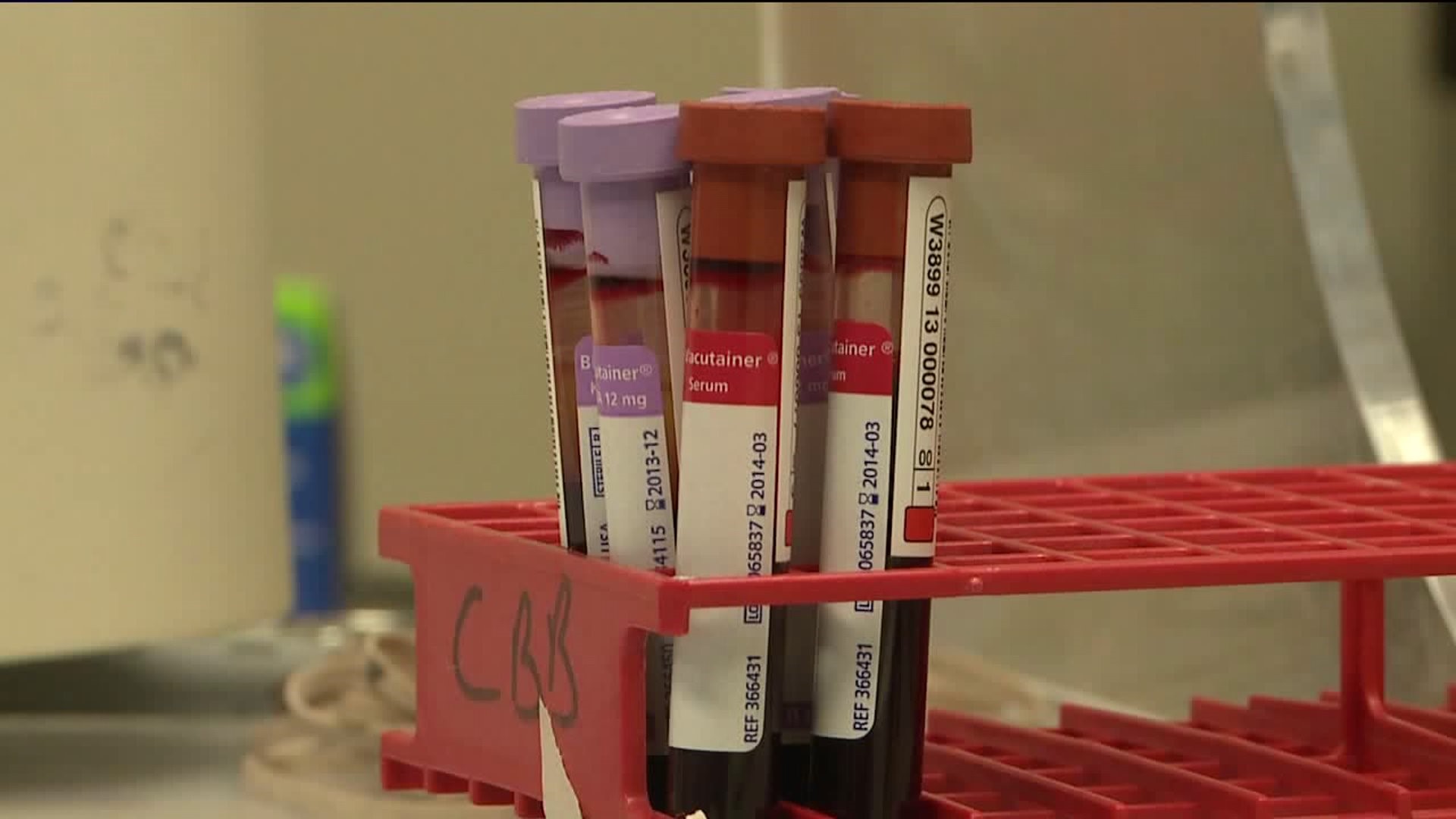MAHONING TOWNSHIP, Pa. -- Geisinger Health System is teaming up with Johns Hopkins University to find out whether cancer can be detected through a blood test.
In September of 2017, Geisinger Health System began a research project with Johns Hopkins University to answer one question: can certain cancers be detected using a simple blood test?
Ashley Honushefsky is the project manager of the study, called DETECT.
"We're enrolling 10,000 women into the study. Right now, we have 9,000 enrolled. We'll wrap up recruitment in about a month or two," Honushefsky said.
Researchers are looking for two specific markers in the blood that may be associated with cancer. The study is open only to women ages 65 to 75 with no personal history of cancer.
"With the DETECT research study, you need to have two positive blood tests in a row to get a PET-CT scan. That says there's something in your blood we're curious about. We want to know if its cancer, so we do the scan from the base of the neck to the pelvis to see if there's a mass," Honushefsky explained.
Out of 9,000 women enrolled, Honushefsky says they've discovered about a dozen women who had undetected cases of cancer.
One of them was 68-year-old Linda Gardner of Rohrsburg.
"My mother had colon cancer and died at the age of 59. We have a very strong cancer history on her side of the family," she said.
Linda signed up for the study in late 2017, and sure enough, doctors found a cancerous mass in her colon.
"The thing with the DETECT study is, if I hadn't been in that, I wouldn't have had a colonoscopy for another year," Gardner said.
Her message is it takes very little time and effort to get a blood test, but the benefits could be great.
"Don't put off something where you could be extending your life because if something happens to you, it affects your whole family," she advised.
Linda says she feels good and is now considered cancer-free.
If you'd like more information about the study, you can call 570-387-2154 or visit the DETECT Research Study website.

